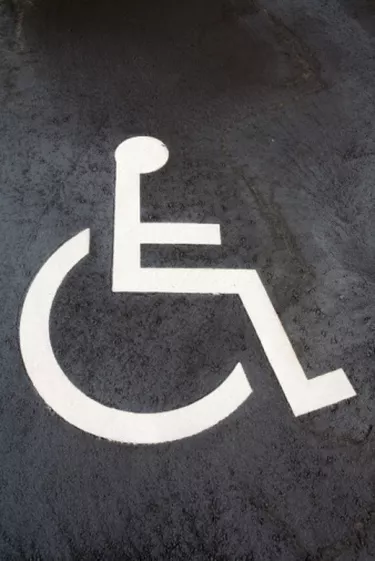
The skills required of people working with the disabled vary greatly. Professionals working with people in wheelchairs possess a different skill set than those working with individuals who have intellectual challenges. Working with the disabled in any capacity requires knowledge of disabilities and the manner in which disabilities affect individuals mentally and physically. Colleges and universities through the United States offer certificate and degree programs for working with the disabled.
Medical Skills
Video of the Day
Many working with disabled people required medical knowledge and skills. Personal or home care attendants must understand the full nature of each patient's disability and what do to in cases of emergency. Some states require certification from personal or home aides; others do not. The National Association for Home Care and Hospice certifies those who complete a 75-hour educational course and pass a written exam. Nurses working with the disabled have specialized training related to the disability they work with. Physical therapists, who often work with the disabled, possess a strong knowledge of human anatomy and how disabilities affect and alter traditional anatomy.
Video of the Day
Communication Skills
Everyone who works with the disabled needs specialized communication skills. Those who work with the mentally disabled, particularly teachers in special education programs, must understand the developmental issues facing the disabled and possess a variety of techniques for communicating verbally and physically. Special education teacher training programs impart these skills.
Those working with physically disabled citizens must understand the perspective of those individuals and possess commutation skills to express this. For instance, a person in a wheelchair might feel he struggles daily with living in a largely inaccessible world. An ability to empathize proves important.
Psychology Skills
Social workers, teachers, home care specialists, nurses, doctors, physical therapists and everyone one else working with disabled citizens must understand the psychology of living with a disability. Many who have disabilities have related problems such as depression and insecurity. Working with the disabled requires a constant sensitivity to such problems and awareness of how to adapt to and work with their emergence. This proves particularly important for those working with individuals who become disabled later in life and suffer traditional stages of grief such as denial, anger and bargaining. Professionals working with disabled citizens learn mechanisms and skills for interpreting and working with the psychological state of the disabled through training programs and education.
Specialty Skills
Certain positions working with the disabled require very specialized skills. Physical therapists, for instance, require the skill to assess the severity of an individual's disability and develop a plan for that individual's therapy. Physical therapists have a working knowledge of standard and specialized uses of treadmills, swimming pools, weight machines and other devices. Educators need a similar skill set, but with regards to developing education plans for individual students and groups with traditional and nontraditional methods.
Knowing the legal rights of the disabled is important for social workers and legal advocates working on behalf of the disabled. These workers possess a full knowledge of programs such as Social Security, Supplemental Security Income, Medicare and Medicaid and all laws and state programs concerning the disabled.